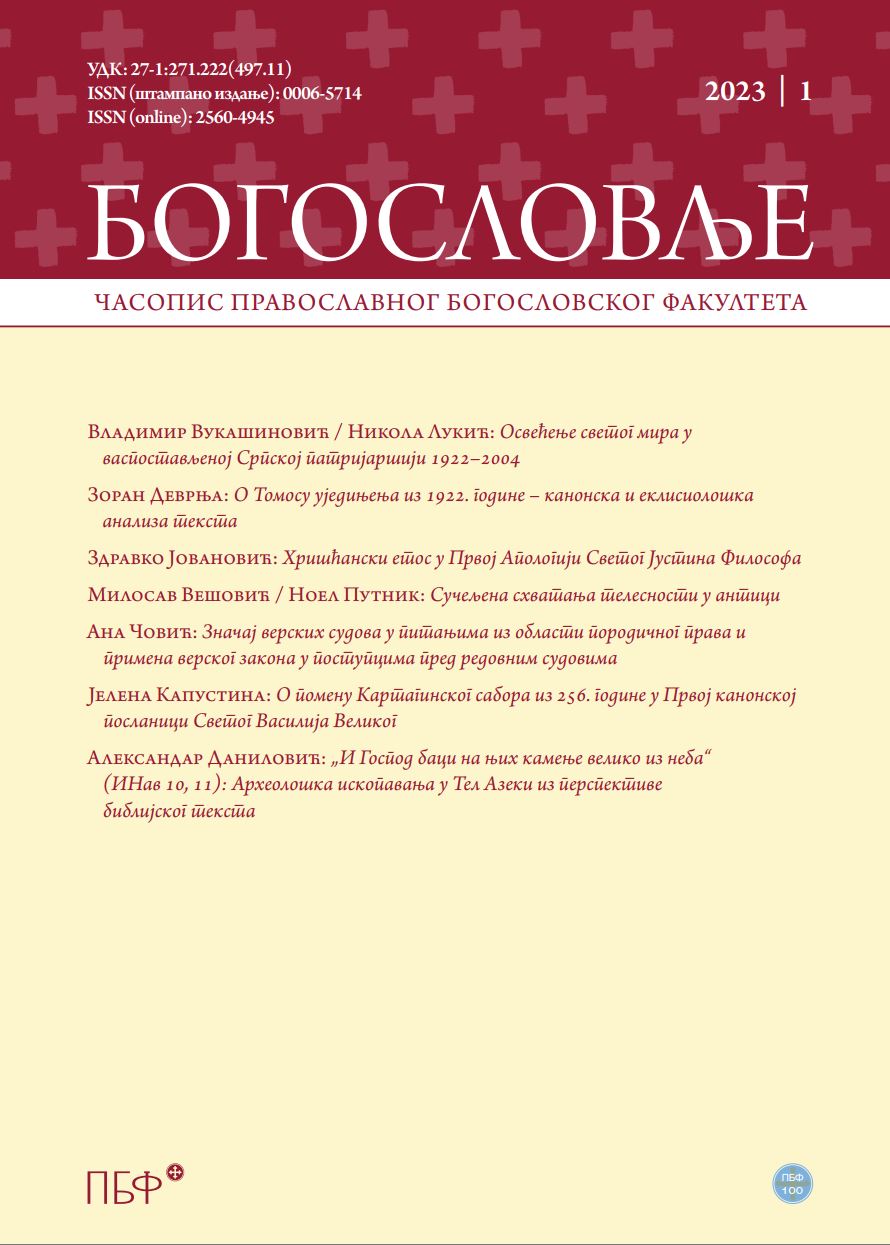Значај верских судова у питањима из области породичног права и примена верског закона у поступцима пред редовним судовима
The Importance of Religious Courts in Issues in the Field of Family Law and the Application of Religious Law in Proceedings before Regular Courts
Author(s): Ana ČovićSubject(s): Law, Constitution, Jurisprudence, Theology and Religion
Published by: Православни богословски факултет Универзитета у Београду
Keywords: marriage law; religious marriages; religious courts; Sharia councils; arbitration councils
Summary/Abstract: The right to cultural and religious affiliation has its basis in international law, in Article 8 of the European Convention on Human Rights, and in Articles 29 and 30 of the UN Convention on the Rights of the Child. Although during the 19th century large parts of Islamic law were replaced by codifications based on the European-continental model, most countries with a predominantly Muslim population retained family law based on Sharia. The spread of different legal models of families brought to Europe by immigrants, especially the Islamic faith, began to raise important questions stemming from Islamic family law, the subordination of women, and the interrelationship of legal, social, and religious rules that characterize Islam. Since Islamic law does not accept the separation of law and religion, Islamic family law, is the most resistant to secularization. Religious courts exist and operate in Great Britain, so the activities of the Catholic National Court for Wales, the Beth Din in London (the rabbinical court of Judaism) and the Sharia Council of the Central Mosque in Birmingham will be analyzed accordingly in the field of marriage and divorce. All of these courts clearly recognize and uphold the ultimate authority of civil processes in matters of marriage and divorce, and none has sought greater recognition from the state. They see their work as a religious duty and providing important mechanisms for organizing community affairs and meeting community needs, although their judgments and decisions regarding marital status do not have civil recognition. In the second part of the paper, the author will provide an overview of the application of religious family law in legal proceedings before regular courts, and will try to answer the question whether the work of religious courts should be placed in the context of wider changes in family law?
Journal: БОГОСЛОВЉЕ
- Issue Year: 82/2023
- Issue No: 1
- Page Range: 65-89
- Page Count: 25
- Language: Serbian

